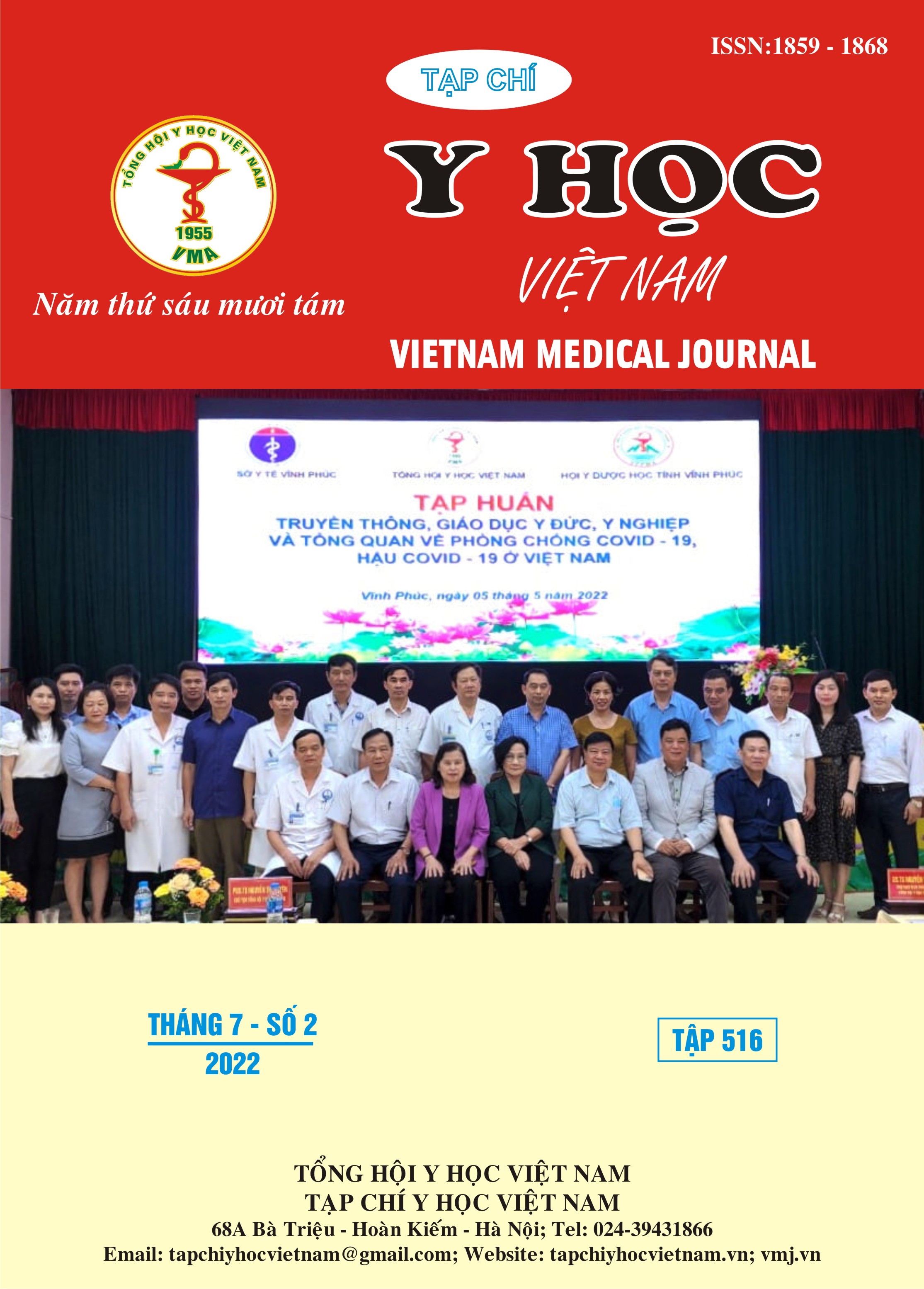THE RESULTS OF CHAIN OF CHEMOTHERAPY AND ANTI-EGFR DRUGS IN PATIENTS WITH ADVANCED STAGE LUNG CANCER
Main Article Content
Abstract
Aims: Evaluation of the results of chemotherapy and anti-EGFR drugs in patients with advanced stage lung cancer. Population: The patient was diagnosed stage IV non-small cell lung cancer, received oral erlotinib after 4-6 cycles platinum-containing regimen chemotherapy at National Cancer Hospital from January 2016 to June 2020. Patients and Methods: Retrospective combined prospective study. Results: The overall response rate and disease control rate with platinum-based chemotherapy was 52.4% and 81%, respectively. The overall response rate and disease control rate after 3 months of erlotinib treatment was 33.4% and 93.6%; After 12 months, the overall response rate was 43.0% and the disease control rate was 70.5%. PFS with erlotinib was superior in patients with cutaneous adverse events and response to first-line chemotherapy. Conclusion: Response rates to chemotherapy are higher in patients with EGFR mutations. Progression-free survival with erlotinib is associated with cutaneous adverse events and response to first-line chemotherapy.
Article Details
Keywords
Lung cancer, chemotherapy, anti-EGFR drugs
References
2. Urata Y, Katakami N, Morita S. et al (2016), Randomized Phase III Study Comparing Gefitinib With Erlotinib in Patients With Previously Treated Advanced Lung Adenocarcinoma: WJOG 5108L, J Clin Oncol. 34(27), 3248-57
3. W. D. Travis, E. Brambilla, A. G. Nicholson et al (2015). The 2015 World Health Organization Classification of Lung Tumors: Impact of Genetic, Clinical and Radiologic Advances Since the 2004 Classification. J Thorac Oncol, 10(9), 1243-1260.
4. Gandara DR, Grimminger P, Mack PC, et al. Association of epidermal growth factor receptor activating mutations with low ERCC1 gene expression in non - small cell lung cancer. 2010; J Thorac Oncol. 5, 1933-8.
5. Lee S. M, Khan I, Upadhyay S et al. First-line erlotinib in patients with advanced non-small-cell lung cancer unsuitable for chemotherapy (TOPICAL): a double-blind, placebo-controlled, phase 3 trial. 2012; Lancet Oncol. 13(11), 1161-70
6. Greenhalgh J, Bagust A, Boland A. et al. Erlotinib and gefitinib for treating non-small cell lung cancer that has progressed following prior chemotherapy (review of NICE technology appraisals 162 and 175): a systematic review and economic evaluation. 2015; Health Technol Assess. 19(47), 1-134.
7. Shepherd FA, Rodrigues Pereira J, Ciuleanu T, et al. Erlotinib in previously treated non-small-cell lung cancer. 2005; N Engl J Med, 353:123–32
8. Sheikh N and Chambers CR. Efficacy vs. effectiveness: erlotinib in previously treated non-small-cell lung cancer. 2013; J Oncol Pharm Pract. 19(3), 228-36.


